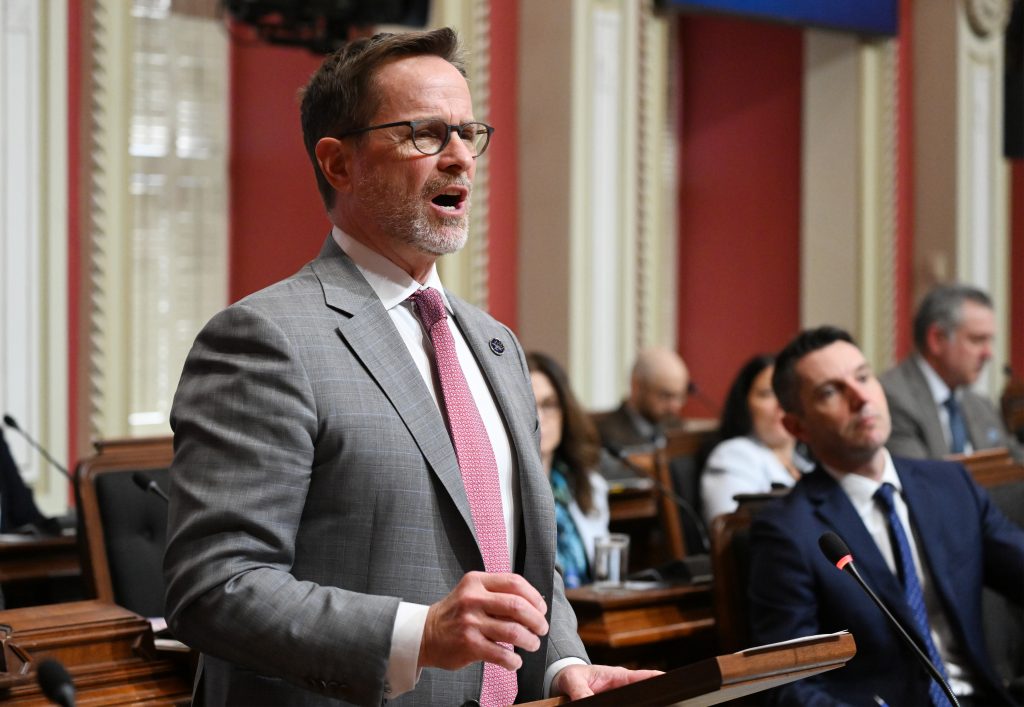Medical departments suffer from a ‘management vacuum,’ according to a HEC study

Posted March 26, 2025 4:04 pm.
Last Updated March 26, 2025 4:05 pm.
There are significant management gaps in many medical departments, according to a new HEC Montréal study released Wednesday. It indicates that problematic healthcare facilities do not adequately assess service performance, that there is a lack of information sharing between colleagues, and often even an “unhealthy work climate.”
Alain Rondeau and Luc Bélanger-Martin, management specialists at HEC Montréal, were invited to assist medical departments, particularly in hospitals, that were experiencing management issues. Over the past few years, they have worked with some fifteen facilities, resulting in a portrait of the main management issues that come into play when they observe a deficient situation.
Bélanger-Martin, a senior lecturer at HEC Montréal and a specialist in management and strategy, who has worked as a consultant with medical teams, emphasizes from the outset that not all medical departments have management problems.
“There are departments that function very well, that are able to make decisions, and that have an appropriate modus operandi. Alain and I weren’t called upon to help with these departments; we were really working with the departments that were having more difficulty managing the system,” he explains.
The experts identified that institutions with management issues rarely evaluate service performance.
“When it comes to estimating results, we often refer to poor data such as volume or coverage rates,” the study states.
The authors also mention the difficulty of using available clinical outcomes such as recurrence or morbidity or mortality rates. They point out that several performance indicators are available from the Régie de l’assurance maladie du Québec (RAMQ) or the Ministry of Health, but they are rarely used.
“We don’t validate that our approach effectively meets the needs of the population. This is also a major management problem. We don’t use available data to determine the value of what we do,” explains Rondeau, honorary professor at HEC Montréal, who founded the HEC Montréal Health Hub, a university platform that generates and disseminates knowledge around best practices in health management.
“There is an extremely significant management vacuum in the healthcare system, which means that departments are left largely to their own devices, and essentially all decisions are made by physicians,” continues Rondeau.
Because of the “administrative vacuum,” it is the physician’s autonomy that ensures they make decisions, and their interests often take precedence over the public’s interest, maintains Rondeau.
“I’m thinking, for example, of the physician’s availability,” he says. Medical coverage in a hospital: if the department doesn’t clearly agree on how to cover needs, we end up with hospitals that will have very limited coverage because we’re unable to get the doctors to decide that coverage should be more extensive.
Rondeau doesn’t question the physician’s clinical competence, but he believes he needs supervision. “The professionalism of the teams observed is beyond doubt and has never been the subject of our management assessments. We are only interested in the organizational functioning of the teams observed,” the study states.
Little interaction between professionals
Some medical departments analyzed had a “poor climate where interaction is minimal.” Some environments had an even worse climate where there was tension between employees, creating subgroups that avoided each other.
Too often, communication is limited to scheduling or staff assignments. “When there are tensions within a department, what we observe is that everyone does what’s best for themselves, and we don’t share information with colleagues about our observations or what others are doing. We tend to stay within our own boundaries. This is detrimental to the patient in the long run because we don’t benefit from the impact of sharing information,” explains Rondeau.
These moments of exchange must be planned, explains Bélanger-Martin. For example, by creating a weekly meeting to review the cases seen during the week. “It’s not just a conversation around the coffee machine, but really the moments we create at the organizational level, so that we build this intelligence. And in departments where there are more difficulties, these moments are much rarer, if not nonexistent. And we lose a lot in the process,” he says.
“The healthcare system and universities have a significant responsibility to better regulate what happens in medical departments. Our concern is how we can develop management capacity to create a more aligned system and get the most out of it,” Rondeau argues.
While Quebec’s healthcare system faces many challenges, more efficient management would ensure that every resource produces added value.
—
Health content from The Canadian Press is funded through a partnership with the Canadian Medical Association. Editorial choices are the sole responsibility of The Canadian Press.
–This report by La Presse Canadienne was translated by CityNews








